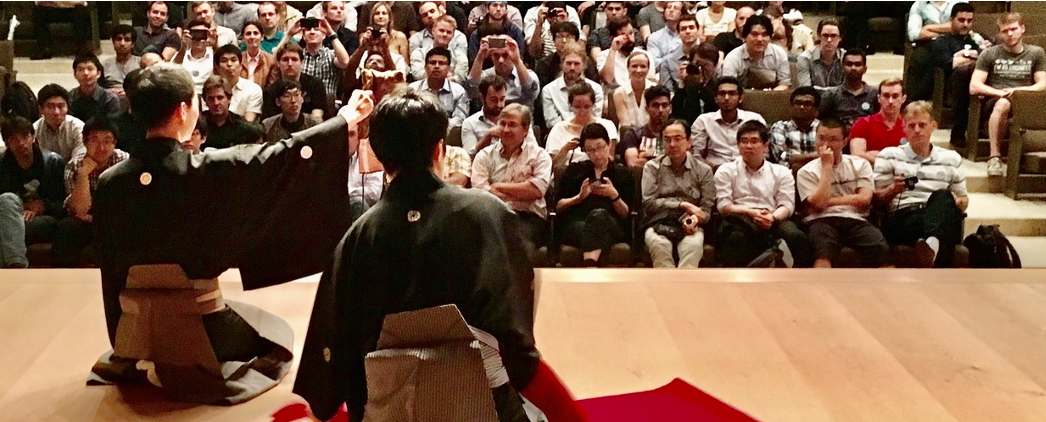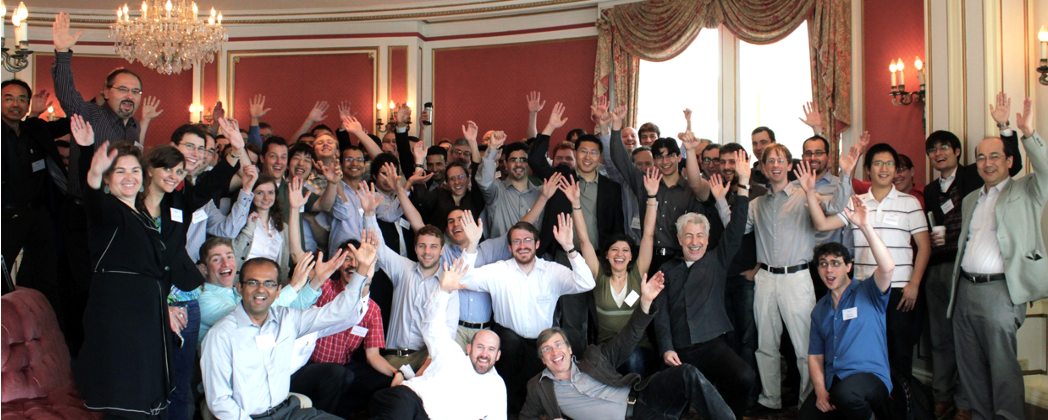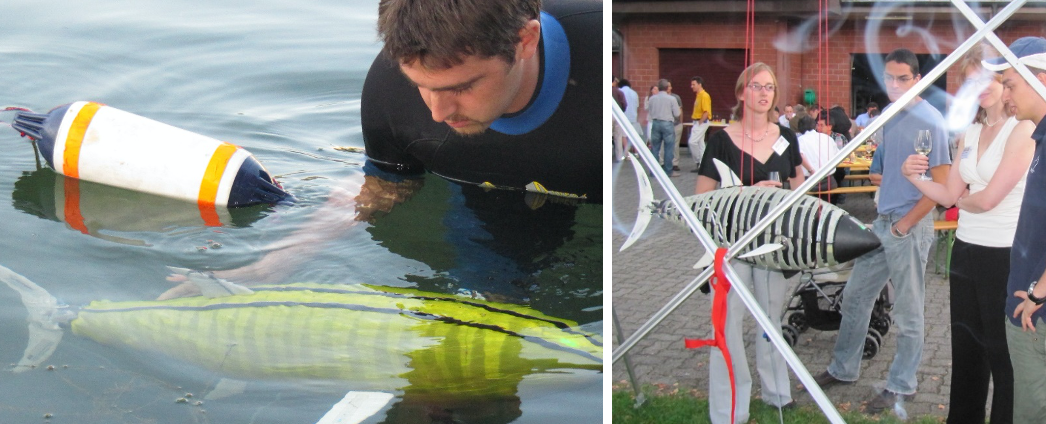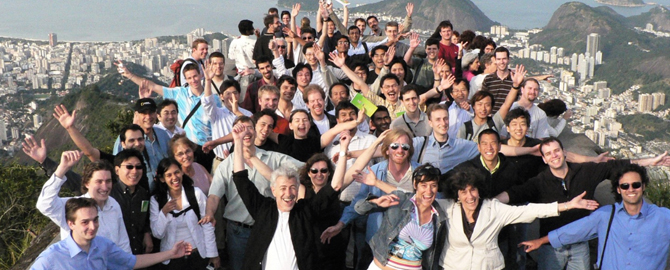Date and time:
January 21 at 7:00am (PST)/ 4:00pm (CET)/ 11:59pm (JST)
Live Stream: Zoom Webinar (https://zoom.us/j/99889265917)
Live questions and discussion: Slido (https://app.sli.do/event/2c0a7ivq)
Moderator: Robin Murphy (Texas A&M University)
Panelists: Paolo Dario (Scuola Superiore Sant'Anna), Lino Marques (University of Coimbra), Haichong (Kai) Zhang (Worcester Polytechnic Institute)
Front Row Participants: Roland Siegwart, Jing Xiao, Ryosuke Tsumura, Eliah Aronoff-Spencer, Antonio Frisoli, Vignesh Babu Manjunath Gandudi, Filippo Cavallo
Title: Robotics and COVID
Video on Bilibili: https://www.bilibili.com/video/BV1Jv4y1f7qQ/
Video on YouTube: https://youtu.be/MRbfVbWtGeI
Since January 2020, more than 300 different robots in over 40 countries have been used to cope with some aspect of the impact of the coronavirus pandemic on society. The majority of these robots have been used to support clinical care and public safety, allowing responders to work safely and to handle the surge in infections. But robots have also been adopted in surprising numbers by private companies, educational institutions, and individuals in order to maintain continuity of work, education and quality of life. Applications such as delivery robots suddenly went from being a distant possibility to being put into daily service. This panel will discuss how robots have been successfully used and what is needed, both in terms of fundamental research and policy, for robotics to be prepared for the future emergencies. The questions the panel will address include:
- What robots were used for? Is there a commonality to the robots?
- Were enough robots, or enough of the right robots, available?
- What were the technical gaps in the robots? What work is needed for the future?
- Were there policies, regulations, or intellectual property issues that interfered with the appropriate use of robots? Are there ethical issues?
- Is COVID-19 the tipping point for robots in healthcare, public safety, delivery, and the home? What is the impact on robotics after the pandemic?
Robin R. Murphy (Moderator)
Robin R. Murphy(Moderator)
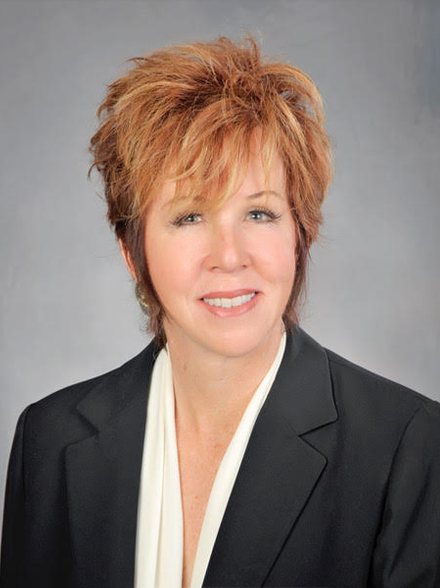
Dr. Robin R. Murphy is the Raytheon Professor of Computer Science and Engineering at Texas A&M University, a TED speaker, and an IEEE and ACM Fellow. She helped create the fields of disaster robotics and human-robot interaction, deploying robots to 29 disasters in five countries including the 9/11 World Trade Center, Fukushima, the Syrian boat refugee crisis, Hurricane Harvey, and the Kilauea volcanic eruption. Murphy’s contributions to robotics have been recognized with the ACM Eugene L. Lawler Award for Humanitarian Contributions, a US Air Force Exemplary Civilian Service Award medal, the AUVSI Foundation’s Al Aube Award, and the Motohiro Kisoi Award for Rescue Engineering Education (Japan). She co-chaired the White House OSTP and NSF workshops on robotics for infectious diseases, see roboticsForInfectiousDiseases.org, and recently co-chaired the National Academy of Engineering/Computing Community Consortium workshop on robots for COVID-19.
Paolo Dario
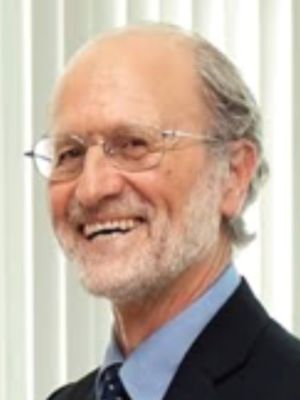
Paolo Dario is Professor of Biomedical Robotics at the Scuola Superiore Sant'Anna (SSSA) in Pisa, Italy, founding Director of The BioRobotics Institute, founding Coordinator of the PhD in BioRobotics at SSSA and co-founder of the M.S. Course in Bionics Engineering in Pisa. He is visiting professor at various universities in Europe, USA, the Middle East and Asia, Founding Editorial Board Member of the Journal “Science Robotics” and Editor-in-Chief of the IEEE Transactions on Medical Robotics and Bionics. Paolo Dario is an IEEE Fellow, served as President of the IEEE Robotics and Automation Society and received the 2017 IEEE RAS Pioneer Award for Biorobotics.
Lino Marques
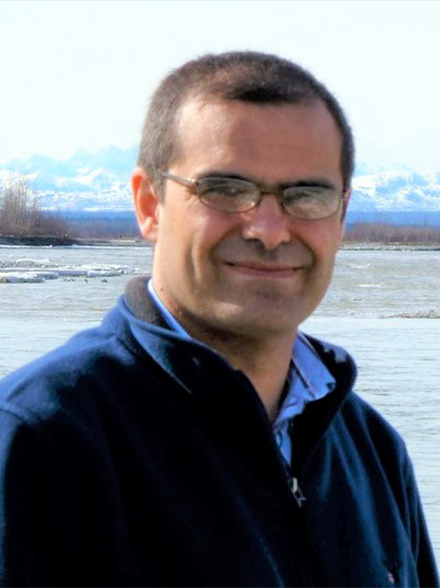
Lino Marques is an Associate Professor at the University of Coimbra, Portugal, and a Senior Researcher at the Institute of Systems and Robotics, where he heads the Field Robotics group. His research activities focus on mobile robot olfaction, multi-robot systems, robotics for hazardous environments and field and service robotics. In the past years he has been involved in several national and European research projects, having been the local coordinator of FP7 TIRAMISU researching methods for autonomous robotic detection of landmines and FP6 GUARDIANS researching swarm robotics approaches to support firefighting brigades. He has been involved in the organization of multiple scientific conferences and workshops, including a series of workshops on Robotics for Environmental Monitoring. He is editor in chief for Robots and Multi-Robot Systems of the International Journal of Advanced Robotic Systems, from SAGE and has been guest editor for Special Issues on other robotics journals, such as IEEE Robotics & Automation Magazine, Autonomous Robots, Robotics and Autonomous Systems. He chairs the IEEE Robotics and Automation Society, Special Interest Group on Humanitarian Technology (RAS-SIGHT) and vice-chairs the Portuguese Robotics Society.
Haichong (Kai) Zhang
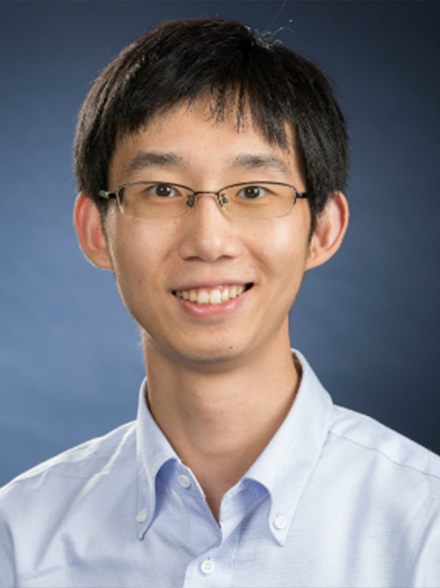
Dr. Haichong (Kai) Zhang is an Assistant Professor in Biomedical Engineering and Robotics Engineering with an appointment in Computer Science at Worcester Polytechnic Institute (WPI). He is the founding director of the Medical Frontier Ultrasound Imaging and Robotic Instrumentation (Medical FUSION) Laboratory. His research interests include advanced imaging and robotic instrumentation with emphasis on ultrasound and photoacoustic imaging for medical applications. Dr. Zhang received his B.S. and M.S. in Human Health Sciences from the Kyoto University, Japan, and subsequently earned his M.S. and Ph.D. in Computer Science from Johns Hopkins University. He is the recipient of the NIH Director's Early Independence Award (DP5) in 2019 and the Early Investigator Research Award from the Department of Defense Prostate Cancer Research Program in 2018.

